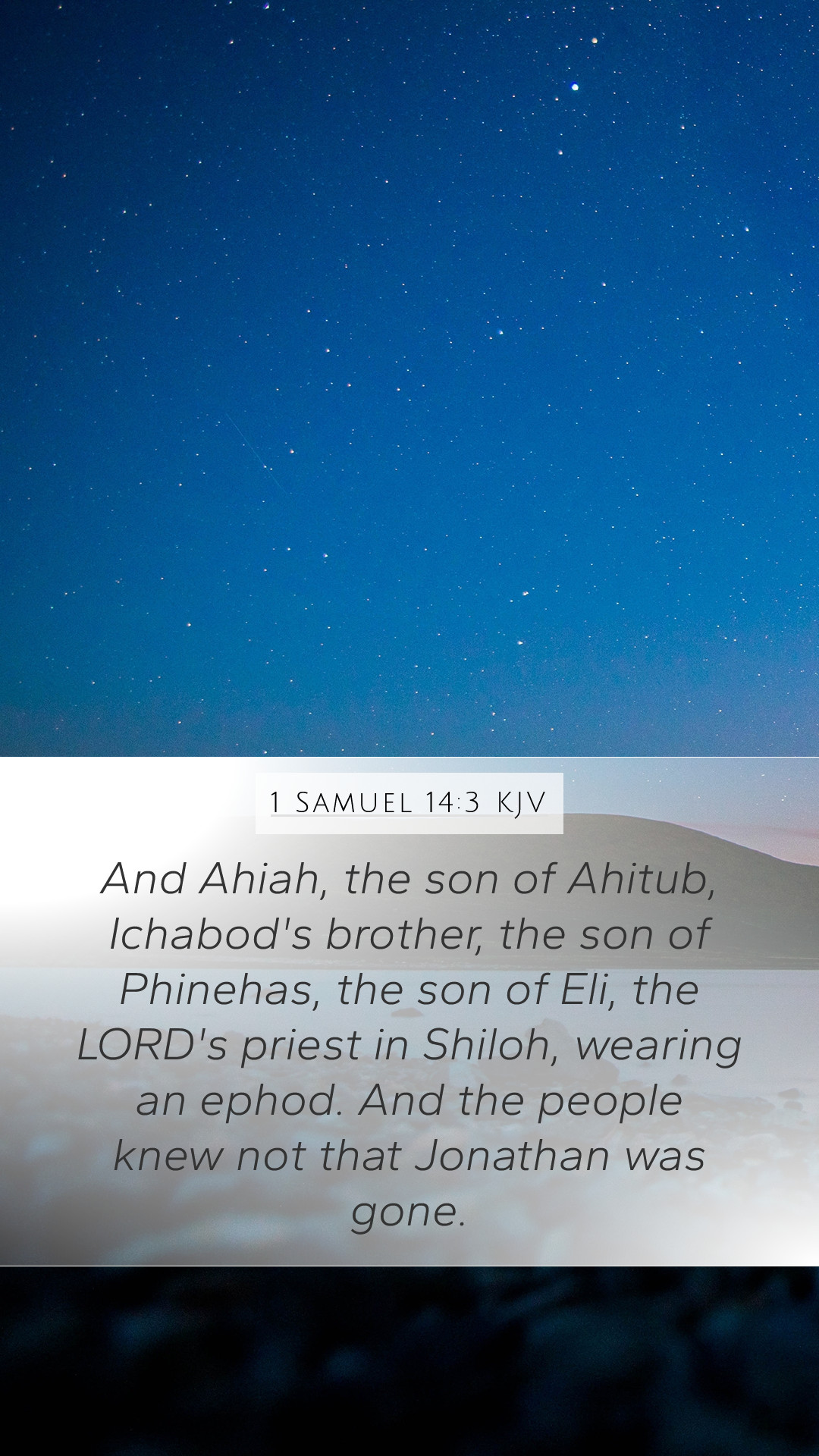Understanding 1 Samuel 14:3: A Combined Commentary
Bible Verse: 1 Samuel 14:3 - "And Ahiah, the son of Ahitub, Ichabod's brother, the son of Phinehas, the son of Eli, the Lord's priest in Shiloh, wearing an ephod. And the people knew not that Jonathan was gone."
Overview of 1 Samuel 14:3
This verse occurs in the context of Jonathan's daring initiative against the Philistines. It highlights the role of Ahiah, a priest, wearing an ephod, which was an important priestly garment used in the inquiry of God's will. The verse also signifies a moment of covert action taken by Jonathan, as the people were unaware of his departure.
Examining the Characters
- Ahiah: The priest that symbolizes continuity of the priesthood from Eli's line. His mention highlights the significance of divine guidance in the life of Israel.
- Jonathan: The son of Saul, representing boldness and faith in action against overwhelming odds.
Insights from Matthew Henry's Commentary
Matthew Henry elaborates on the accountability of leadership in Israel. He underscores that the absence of awareness among the people regarding Jonathan's departure indicates a lack of active engagement in spiritual matters, suggesting that the priestly presence should have stirred greater awareness. Henry emphasizes the importance of divine principles in leadership and decision-making.
Albert Barnes' Perspective
Albert Barnes provides a detailed view of the historical and spiritual implications of this verse. He notes that the ephod represents a connection to God, as it was worn by the priests during sacred duties. Barnes elaborates that the presence of Ahiah, who comes from a lineage that had substantial spiritual authority, suggests the need for God's guidance in critical times. He also reflects on the significance of Jonathan’s courage in seeking God's deliverance against the Philistines.
Adam Clarke's Analysis
According to Adam Clarke, the mention of the lineage of Ahiah serves to remind the reader of Israel's spiritual heritage, despite the moral decline. Clarke notes Jonathan's secretive endeavor aligns with the theme of faith operating in personal bravery, especially in contrast to the collective unawareness of the Israelites. He discusses the dynamics of faith and collective fear, indicating that individual faith can sometimes shine brightly where communal faith appears to wane.
Theological Implications
This verse serves as a poignant reminder of the importance of being attentive to divine guidance. The act of Jonathan, coupled with the presence of a priest wearing the ephod, signifies that God’s presence should guide every action. The unawareness of the people reflects a broader theme of spiritual lethargy in Israel during this time.
Application to Modern Believers
For modern congregants and Bible study groups, this verse emphasizes the need for vigilance and awareness in spiritual matters. It invites believers to seek God’s guidance actively and to support each other in faith-filled actions against personal and communal challenges.
Cross References
- 1 Samuel 14:6 - Jonathan’s speech before attacking the Philistines.
- 1 Samuel 10:19 - Israel's rejection of God as king.
- Exodus 28:4 - Details about the priestly garments.
Conclusion
1 Samuel 14:3 serves as a rich foundation for deeper understanding of faith, courage, and divine guidance. Through the insights gathered from public domain commentaries, believers can enrich their Bible study insights and enhance their understanding of Scripture in both historical and practical contexts.


